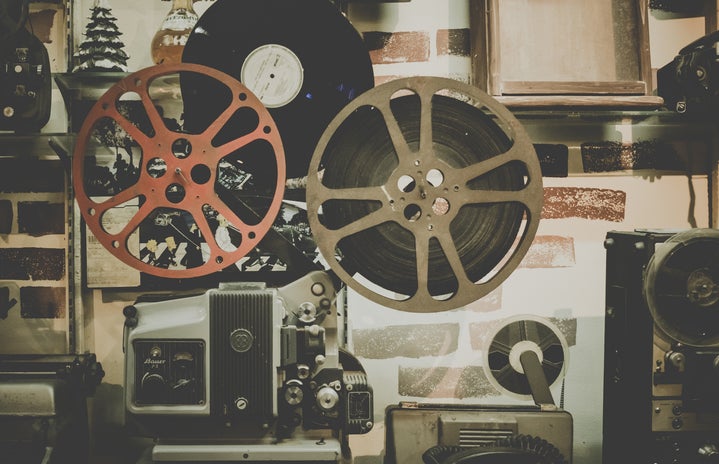“The Trial of the Chicago 7” is Aaron Sorkin’s courtroom drama following the Chicago 7, a group of anti-war activists who protested at the 1968 Democratic National Convention. This film features a flashy cast and the epitome of Sorkin’s iconic writing style. “The Trial of the Chicago 7” is nominated for Best Picture, Sacha Baron Cohen for Best Supporting Actor, Best Original Screenplay, Best Cinematography, and Best Film Editing.
To talk about “The Trial of the Chicago 7” is to talk about Aaron Sorkin, the writer, and director. Sorkin has the tendency to write every character like they are the smartest person in the room, a common trope Sorkin used in “The West Wing.” Personally, I am completely over Sorkin’s writing. It feels so fake and just not something I enjoy. It feels self-congratulating and overdone and that was my main problem with the movie. I’ve seen a lot of praise for the ensemble cast as well, which also feels strange to me. The only actors who don’t seem to be completely calling it in or doing a weird accent that distracts from their performance were Yahya Abdul-Mateen II as Bobby Seale and Sacha Baron Cohen as Abbie Hoffman. Abdul-Mateen might as well have been in a completely different movie about the Black Panther Party. Abdul-Mateen’s portrayal of Seale shows the injustices against Black people in the criminal justice system and then leaves the film when his character is no longer relevant. I can’t help but daydream about a draft of a stronger film that focused more on Seale and his part in this trial and situation. Baron Cohen’s portrayal of Hoffman is comedic, as the real-life Hoffman was, and delivers the occasional cheesy lines as if they weren’t cheesy at all. Overall, “The Trial of the Chicago 7” is my least favorite film in the best picture category this year. In many ways, this felt like a very mediocre movie that only got awards buzz because of the names behind it. – Allie Remhof
I have a love-hate relationship with “The Trial of the Chicago 7.” There were many aspects I enjoyed, including several of the actors’ character portrayals, the sprinkling of comedic relief, and the glimpse into a moment in history I didn’t know much about. With all this being said, there were some major flaws that I struggled with. The first one being the on-screen end to Bobby Seale, co-founder of the Black Panther Party, which used the judge’s chaining him by the wrist and physically silencing him as a moment of climax to simply draw the audience in. In the movie, this only happened for one day of the trial, making the judge the sole villain. In reality, this racially motivated silencing occurred for days on end, making the real-life villain not only the judge but the whole judicial system that America relies on. Along with this, once Seale leaves the courtroom, we don’t see any more of the trials and struggles he suffered, which were greater than his fellow defendants. To me, this seems like a missed opportunity by Aaron Sorkin, the writer, and director, to make a lasting statement on the racist structures that the American judicial system was built on and still supports today. In accordance with the removal of Seale, once the director’s point was proven, this movie made history seem polished. Snappy banter in the courtroom, characters’ humor coming out more than their understanding of the severity of their situation, and the 60’s aesthetic coming through with each outfit and room took away from the revolutionary capabilities of this movie. While “The Trial of the Chicago 7” kept me entertained and prompted me to read a history book, Sorkin could’ve done a better job at leaving some jagged edges to make this story a true political statement, rather than just a crowd-pleaser. – Molly Bennett




